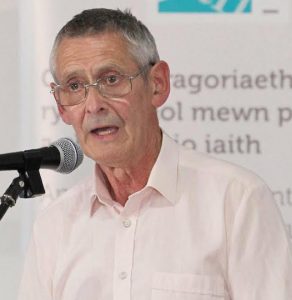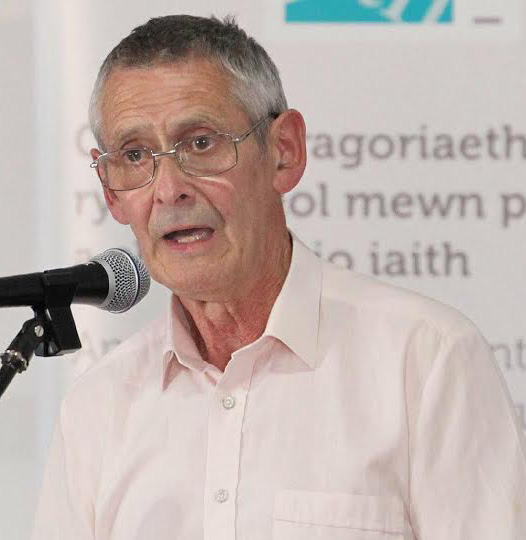 CYNOG DAFIS, former MP, former AM, a man of renowned high principle and strong views. Officially recognised as the first Green MP. A man described to The Herald as ‘very much still a force of nature’ and one never afraid of expressing views strongly held in equally strong, clear language.
CYNOG DAFIS, former MP, former AM, a man of renowned high principle and strong views. Officially recognised as the first Green MP. A man described to The Herald as ‘very much still a force of nature’ and one never afraid of expressing views strongly held in equally strong, clear language.
We asked Cynog Dafis for his insights on one of the largest, if not the largest, issue facing Wales at the moment, the EU referendum scheduled for June 23. We were delighted when he accommodated our request and here’s what he had to say:
FOR WALES AND FOR EUROPE, LET’S STAY IN THE EU by Cynog Dafis
Cynog told us: “The tragedy of the current debate about Britain and Europe is that it is conducted in terms of them and us. The European Union is about us: all the peoples of Europe, working together for the common good. The growth of this common identity over the last sixty years has been vital in keeping the European peace and the strengthening of democracy.” He continued: “Solidarity is a fundamental principle of the EU. Richer countries contribute resources to help raise the economic performance of poorer ones. Britain and Germany, rich countries, are ‘net contributors’ – they contribute more than they receive.
“Wales, as a poorer nation within the rich British state, receives much more that it contributes. This is as it should be. The EU created the Structural Funds for precisely this purpose. They have been, as in the case of Ireland, highly successful. That they have been less so in Wales has more to do with failures of Welsh Government than with the Funds themselves.” Cynog Dafis was scornful of claims made by those who wish to leave the EU: “Eurosceptics argue that Britain outside the EU would provide equivalent support for nations and regions like Wales. There is no reason to believe them.
Britain under Margaret Thatcher dismantled regional development policy and presided over the economic decline of Wales and Northern England. Britain has led the charge within the EU for cuts to the structural funds and support for agriculture, so vital for our rural economy. “Outside the EU Wales would be left to the tender mercies of a right-wing London Government whose priority is London and the English South and regards the notion of solidarity with derision.” On the issue of EU bureaucracy, Cynog Dafis provided robust analysis: “Eurosceptics also complain about EU regulation, sometimes with reason.
European regulations however require approval by the European Council of Ministers of which Britain is among the most powerful members and are subject to modification by member-state parliaments (and indeed in many cases by our own National Assembly). “Outside the EU there would still be regulation, to protect the environment and workers’ rights and to promote health and safety. It us the easiest thing in the world to ‘blame Europe’ for decisions, sometimes unpopular, which are important for the general good. Surely it makes sense for the countries of Europe to make these decisions jointly, rather than seek selfish competitive advantage by cutting corners and lowering standards.” On the challenges facing the European Union, Cynog was clear: “The EU today is under pressure as never before.
Migration both within and from beyond Europe’s borders raises serious and complex issues, economic, social and humanitarian. These have been exacerbated by the rapid expansion of the EU following the collapse of communism. Including countries with weaker economies like Greece within the Euro was a major strategic error.” And on Britain’s future he was trenchant: “For Britain to leave the EU would intensify, not solve, the crisis at a time when above all we need stability, cooperation and joint protection against a whole range of threats, including terrorism. It would further destabilise Europe when cool-headed reform is what we need. Everyone would lose and Wales would be among the biggest losers.
















Add Comment